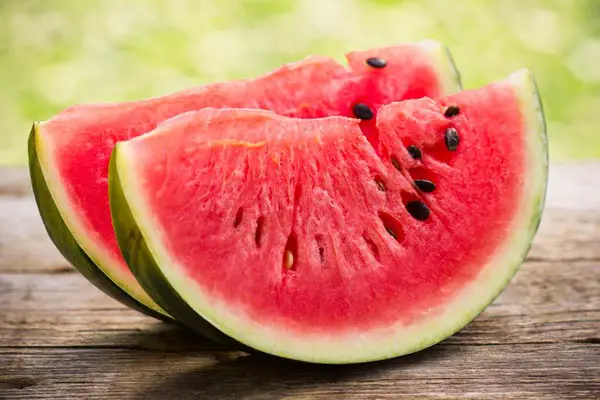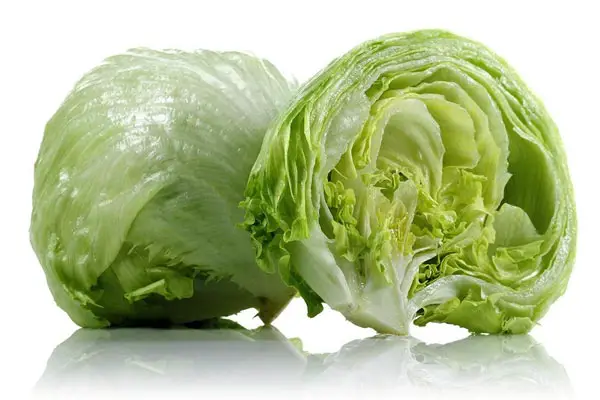Can Rover Get His Paws On Some Of That Watermelon?
For many of us, our dog is not just a pet it is a family member. We want to provide our four-legged friends with the best possible lifestyle, and this includes what we feed them.
Pet owners find themselves wanting to share food items with their dogs, including things like pieces of watermelon on hot summer days.
People often wonder if it is safe to share bits of watermelon with their favorite canine companion, and this article seeks to address that topic.
Along the way, we will also touch on other aspects such as health benefits and risks as well as possible ways to prepare pet-friendly treats.
Is Watermelon Bad For A Dog To Eat?
The answer to that question is, no it is not. That answer is not just a personal opinion, as professionals will agree.
It should be safe to feed your pet watermelon as long as you follow a few precautions.
Mara Bovsun states the same in her American Kennel Club article, “Can Dogs Eat Watermelon?” This watery fruit can provide some health benefits to your dog. Parts of the melon should be avoided, however.
What Are The Health Benefits Of Watermelon For Dogs?
Along with being a tasty treat for both Rover and you, this melon contains a lot of water. It consists of approximately 92-percent H2O.
That can help keep a dog hydrated on a warm day, especially puppies who do not know their limitations quite yet.
Watermelons are sodium-free, so there will be no additional salt intake when you feed your dog this snack. It is also cholesterol and fat-free.
That makes it a healthier food option than most of the things found at the summer barbecue.
This fruit is also a low-calorie snack. According to Watermelon.org, a single two-cup serving adds 80 calories to the daily total.
Numbers like that are good for the whole family, not just the four-legged members!
That page also lists the fruit as a source for vitamins A, B6, C, phosphorus, potassium, magnesium and thiamine.
While all of these can aid your K-9’s health, some stand out from the others. Anna Burke‘s American Kennel Club article “7 Vitamins Your Dog Needs for a Healthy Lifestyle,” lists four of these.
Vitamin A can aid your dog’s cell and immune system functions. It is also a component in the fetal development and puppy growth.
Watermelon can provide this vitamin to young dogs, who are born without it stored in their liver.
The AKC article also mentions vitamin B6. This compound influences blood cell and nervous system functions. Dogs need it to help generate glucose as well.
Thiamine and vitamin C are antioxidant sources. These help to remove oxidizing agents from your puppy. They can also aid with cognitive degeneration as well as inflammation.
Watermelons are also a source of some amino acids. It contains both arginine and citrulline. These may help with your dog’s blood circulation.
What Are The Health Negatives Of Watermelon For Dogs?
This fruit can pose some issues for Fido as well. Seeds can be an issue, as can the rind. Also, overfeeding your pet can cause them discomfort as well.
Too Much Watermelon Can Lead To Diarrhea
Dogs, just like their owners, can have too much of a good thing. If your pooch eats more of this fruit than their body can handle, it may cause them to get the runs. That can be an issue for you both.
The main culprit, in this case, is the lycopene found in the fruit. It is an antioxidant that is pigmented and provides the melon with its red color.
Watermelons have high concentrations of lycopene (nearly 40-percent more than the levels found in tomatoes).
Diarrhea can cause dehydration for your canine friend, especially with puppies and seniors. In severe cases, it can create discomfort as well as weight loss.
You can treat your dog’s diarrhea, but you should consult your veterinarian is severe cases (or if the dog is old or extremely young).
PetMD.com‘s article “How to Stop Diarrhea in Dogs” lists several things to look for once your dog develops diarrhea.
It recommends providing plenty of access to water. They also suggest that you contact your vet if the symptoms last for more than 24-hours.
Does Watermelon Contain Too Much Sugar?
Too much sugar is a bad thing for your dog. Eating too much watermelon can cause an upset stomach. Over time it can cause diabetes, tooth decay, and weight gain.
What Amount Of Watermelon Can A Dog Safely Eat?
The size of the dog will play a factor in determining how much watermelon they can handle. You should feed your pet small amounts of this treat no matter how large they are.
Deborah E. Linder (DVM, MS, and DACVN) recommends serving two melon balls per serving in her article “Does an Apple a Day Keep the Vet Away? Harmful vs Healthy Foods for Pets.”
Are Watermelon Seeds Dangerous For Dogs?
Eating watermelon seeds can potentially cause problems with canines. A single seed can block a small dog’s intestines. Medium and large dogs can suffer from this as well if they eat a lot of seeds.
PetMD discusses intestinal obstructions in dogs in greater detail. They list symptoms that include dehydration, vomiting, and weight loss.
Long-term effects may include anorexia or damage to the intestines.
What Should I Do If My Dog Eats A Watermelon Seed?
You will want to monitor your pet closely for any of the symptoms discussed in the previously mentioned article.
If you are unsure (or if your dog shows any of the symptoms), contact your veterinarian. This can be especially important if your furry friend suffers from pre-existing digestive issues.
Can Dogs Eat Watermelon Rinds?
The white colored rind should not be fed to your pet. It may cause your dog gastrointestinal issues. There should be few side effects besides this.
The green outer-skin should also be avoided. Not only can it cause an upset stomach, it cannot be digested properly. This can cause intestinal issues with some pets. It can also cause your dog to choke, especially if it is young.
What Should I Do If My Dog Ate Watermelon Rinds?
Little can be done for an upset stomach. The symptoms should pass fairly quickly. If they last more than a day, you may want to make a call to the vet.
If your canine companion ate some of the green skin as well, provide them with plenty of water and pay extra attention to them.
If they develop an upset stomach, make sure that the condition does not last too long. If you find your pet choking from trying to swallow the tough skin, you will have to clear the obstruction with your finger.
How Should You Feed Your Dog Watermelon?
Remove The Seeds First
Your dog may be a family member, but that doesn’t mean they can serve themselves. You will need to remove the seeds from the fruit pieces you serve your pet. The darker seeds are mature and are the ones that can cause problems.
The white seeds have not developed. They can be broken down by stomach acids. Immature seeds can also pass through the intestines more readily.
Another option to consider is purchasing a seedless melon. Seedless varieties have been around for the past half-century and should be available in most markets.
They will still contain some white seeds, but these are not a problem like the mature seeds can be.
Prepare Properly Sized Treats
If you will be cutting the watermelon into chunks, make sure they are not too big. Your dog may choke on large chunks as he or she inhales them. This can be more of an issue for puppies and for little dogs.
Smaller chunks are also less messy when your four-legged friend eats. A melon scoop should provide an ideal size for most adult dogs.
Taking the time to create intricate designs will be for your benefit, not for your pet’s.
Serve Fresh Or Frozen
Dogs will eat watermelon in about any fashion you serve it in. Freshly cut pieces are quicker to make. Frozen chunks provide a bit more chewing for puppies and smaller dogs.
Where Should You Serve Watermelon Treats?
Some pet owners love the idea of eating watermelon with their furry friends. It is novel to think of sharing a snack with our dogs, eating together like a pack. This notion is probably lost on your pet, who is simply excited to eat something!
There can be a downside to eating food together like this. Your dog will associate the act of eating your food with you.
This may cause bad habits, like begging or even cause them to help themselves at the table.
Watermelon Recipes And Snack Ideas
Frozen Treat: Coconut and Watermelon
This popular recipe is found all over the internet and is fairly simple to make. You will need the following ingredients:
- 2-cups of watermelon
- 1-cup of coconut milk or coconut water
- 1-Tablespoon of honey (this is an option found in some recipes
You will also need a blender and some ice cube trays. The traditional solid trays will work, but many people choose to use the silicone trays with molded shapes as well.
A knife, a scooper, and a sieve (if you do not use a seedless melon) round out the utensils.
Directions: Cut open the watermelon and scoop two cups of fruit into the blender. Add the cup of coconut milk/water (and honey if used) and puree.
Pour the contents into the tray, using a sieve to remove remaining seeds if needed, and place the contents into the freezer.
Make sure to cover the trays, and use something to support the soft silicone molds to help prevent spilling.
Allow the treats to sit for 24-hours and they can then be removed. This can make up to 30 treats, depending upon the size of the trays.
This YouTube video shows a dog owner preparing her version with honey.
Heart Minted Watermelon Pops
A variation to the recipe above substitutes the liquid coconut with two or three mint leaves. Puree the mint and melon together as above and then pour into the trays. This treat not only tastes good, it can help with your dog’s bad breath as well!
Other Ideas
Watermelon can be combined into a variety of frozen treats with just about anything. It can be combined with other fruits or vegetables that are safe for your pet to eat. You can even freeze other doggie treats inside of the pureed melon!
Of course, the watermelon can be served fresh as well. Using small chunks of watermelon as a topper on your dog’s regular dry food is another popular serving choice.
Of course, you can always feed your fuzzy friend small chunks as you cut them from the rind as well (just remember to keep an eye out for those seeds).
Don’t forget that watermelon juice can be poured over food items too.
Conclusion
Watermelons are safe for your dogs to eat. They can provide them with a fun and healthy snack, especially on a warm summer day.
As long as you avoid those rinds and pesky seeds there should be no complaints.
It is easy for all of us to overdo it, especially when it comes to tasty treats. Watermelon is no exception and must be served in moderation.
Too much can result in an upset stomach and a messy floor!
Remember to have fun, and be creative if it strikes your fancy. Your dedication will produce results that you are satisfied with. Your dog’s wagging tail will show their satisfaction as well!






